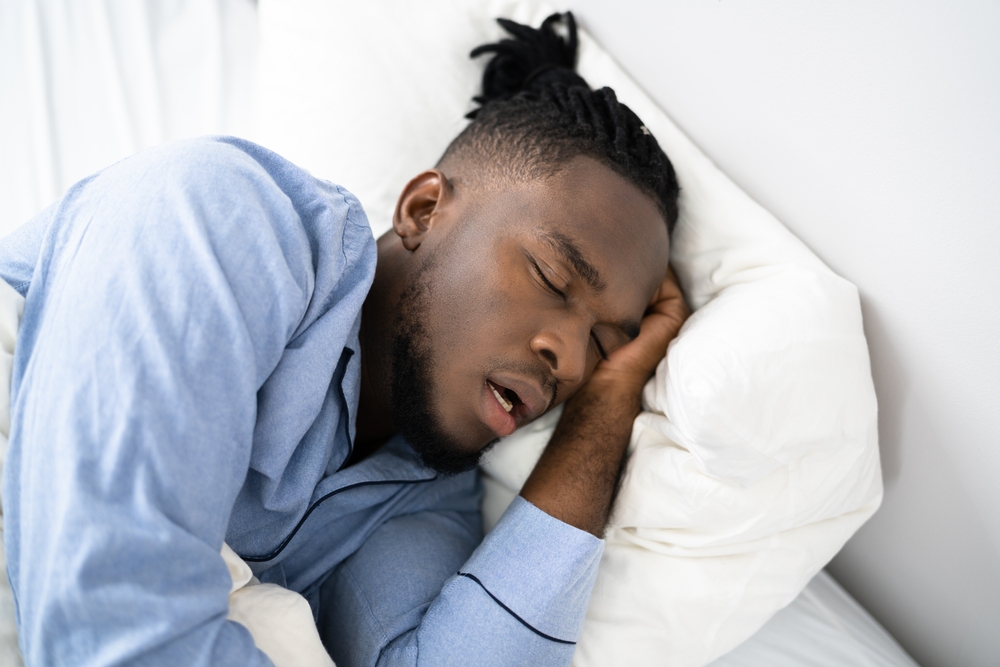When most people think of sleep apnea or snoring, they usually picture a visit to a sleep specialist or primary care doctor. But did you know your dentist might be the first healthcare professional to notice the warning signs? Dentists are in a unique position to identify symptoms of obstructive sleep apnea (OSA) and chronic snoring—conditions that can significantly impact your health and quality of life.
In this blog, we’ll explore why dentists are often the first to recognize sleep-related breathing issues, what symptoms they may observe during routine visits, and why early detection matters.
What Is Obstructive Sleep Apnea?
Obstructive sleep apnea (OSA) is a common sleep disorder that occurs when the muscles in the back of the throat relax too much during sleep, temporarily blocking the airway. This causes repeated interruptions in breathing—sometimes hundreds of times per night. Each pause in breathing can last for 10 seconds or longer, often followed by choking, gasping, or loud snoring.
Over time, OSA can lead to a range of health problems, including:
- Daytime fatigue and difficulty concentrating
- High blood pressure
- Increased risk of heart disease or stroke
- Type 2 diabetes
- Mood changes, including anxiety and depression
Because many symptoms occur during sleep, people with OSA often don’t realize they have it—making early detection critical.
How a Dentist Can Spot the Signs
Dentists see patients regularly—often more than primary care providers. This gives them a unique opportunity to notice subtle or early signs of conditions like sleep apnea. During a routine exam, a dentist may notice physical signs or ask questions that uncover sleep-related concerns.
Here are a few ways your dentist might recognize possible signs of OSA or snoring:
1. Worn Teeth and Bruxism (Grinding)
Frequent teeth grinding at night—also known as bruxism—can be a sign of sleep apnea. The body may clench the jaw or grind the teeth as a response to airway obstruction, often without the patient even knowing it. Dentists often spot flattened, chipped, or worn-down teeth that suggest nighttime grinding.
2. Jaw and Muscle Tension
Chronic jaw tension, soreness, or popping may be related to clenching or the repeated efforts to reopen the airway during sleep. Dentists trained in temporomandibular joint disorders (TMD) and orofacial pain, such as Dr. Roher at Medical Arts Dentistry, can identify whether jaw problems may be linked to disrupted breathing patterns during sleep.
3. Large Tongue or Narrow Airway
During a dental exam, a dentist might notice anatomical features such as a large tongue, a high narrow palate, or a small jaw—all of which can contribute to airway obstruction during sleep.
4. Dry Mouth or Sore Throat
Mouth breathing during sleep (often due to airway blockage) can lead to a dry mouth or sore throat in the morning. If you mention these symptoms, your dentist may suspect snoring or undiagnosed OSA.
5. Conversations About Sleep Quality
Your dentist may ask about your sleep, energy levels, or whether anyone has mentioned your snoring. These questions aren’t just casual—they may help uncover patterns that suggest further evaluation is needed.
Why Early Detection Matters
Undiagnosed sleep apnea doesn’t just interfere with rest—it can slowly take a toll on your entire body. Because many people are unaware of their symptoms, dental appointments offer a valuable checkpoint. Catching sleep apnea early means patients can take steps to improve their breathing during sleep, lower their risk of health complications, and enjoy better energy and concentration during the day.
Left untreated, sleep apnea can lead to serious health problems—but with timely care, it’s manageable.
What Happens Next?
If your dentist suspects you may be dealing with sleep apnea or problematic snoring, the next step is typically a referral to a physician or sleep specialist for further evaluation. This may involve a sleep study, either at home or in a clinic, to monitor breathing patterns and determine whether sleep apnea is present.
Depending on the results and severity, treatment options may include:
- Lifestyle changes (such as weight loss or sleep position adjustments)
- CPAP therapy (Continuous Positive Airway Pressure)
- Surgical interventions in some cases
- Oral appliances to help keep the airway open during sleep
At Medical Arts Dentistry, if your symptoms suggest a possible connection to TMD, bite issues, or jaw-related pain, Dr. Roher can offer evaluation and guidance, thanks to her extensive training in TMD and orofacial pain. From there, a personalized treatment plan can help address the discomfort—and potentially support your sleep health, too.
Sleep Medicine in Savannah and Georgetown
Your dental visit is about more than just teeth, it’s an important part of your overall health picture. Dentists are often the first to notice subtle signs of sleep apnea and snoring, especially when those symptoms show up in your jaw, teeth, or oral tissues.
If you’ve been feeling tired, clenching your jaw, grinding your teeth, or waking up with a sore mouth or dry throat, don’t dismiss these symptoms. Bring them up at your next appointment. At Medical Arts Dentistry, your health and comfort are always the top priority and catching conditions like sleep apnea early can make a world of difference in how you feel, day and night. For appointments, call us at 912-921-0401.

